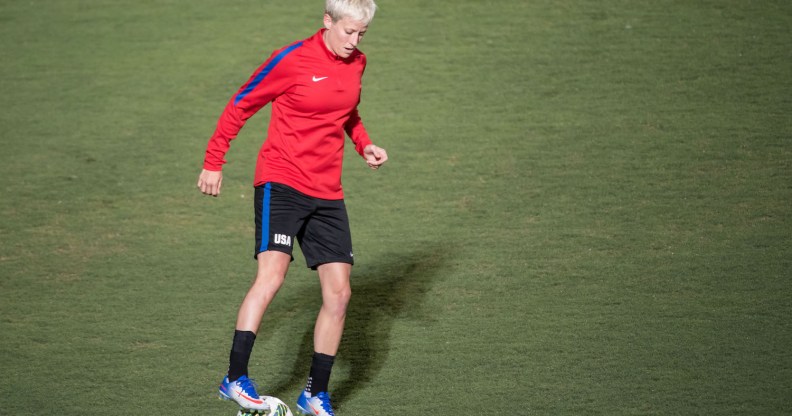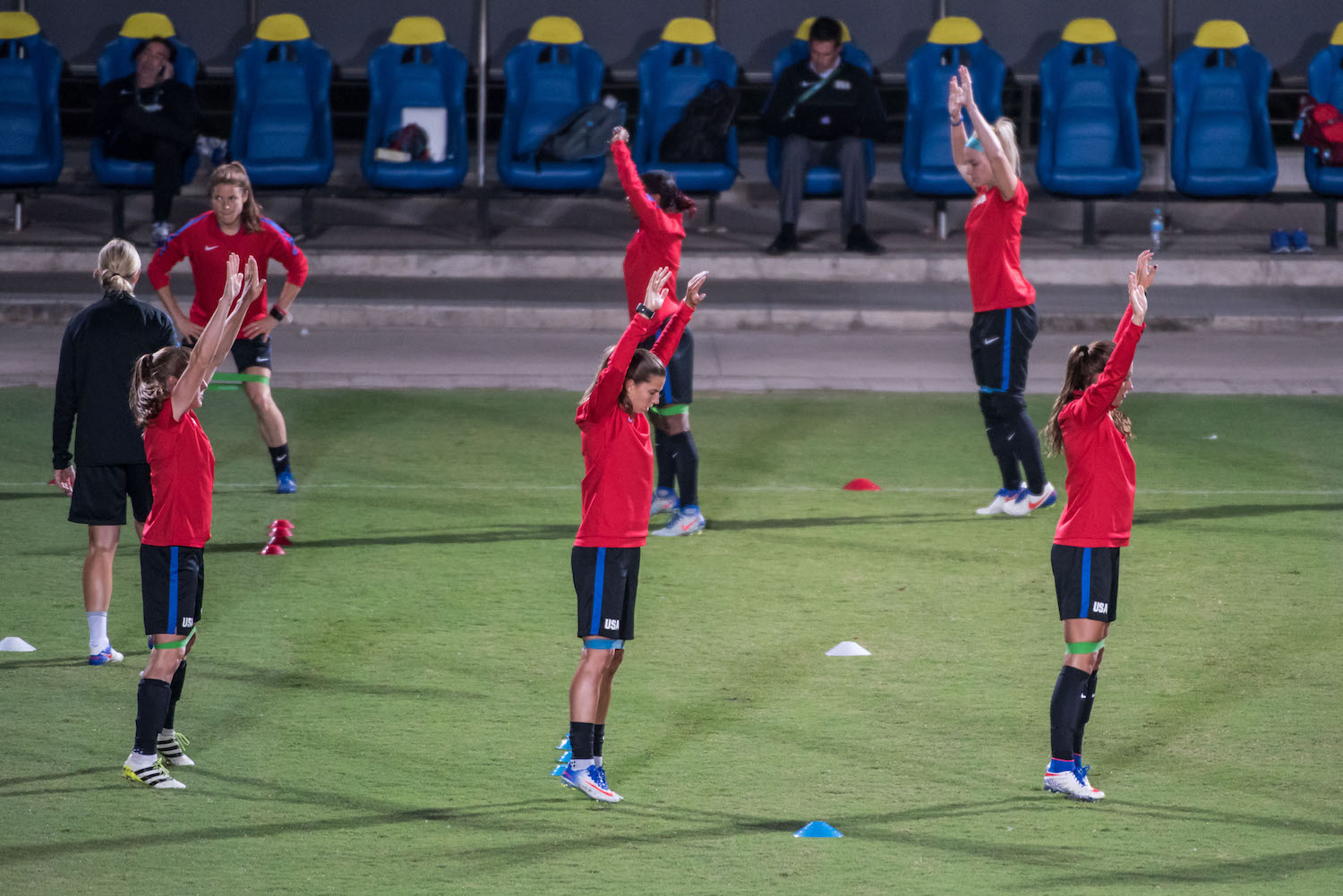Women’s soccer players subjected to homophobic chants in first days of Rio 2016

The US women’s soccer team has already been the subject of homophobic chants from the stands, even though the Olympics only began this week.
As well as crowds chanting “Zika” every time the famed US goalkeeper Hope Solo got the ball because she has campaigned to raise awareness of the disease, a common anti-gay slur was used to chant the team later in a game.
Earlier this week US players said they were told by Brazilians on the sidelines of the game that crowds had chanted the homophobic slur usually reserved for men’s football games in the country, reports the LA Times.

Players from Australia also said they had been subjected to the slur, and Brazilian journalists have reported that this is the first time the slur has been used at a women’s game.
Speaking to the LA Tims, US midfielder Megan Rapinoe called the chant “personally hurtful”, after being told by a stretcher crew what the Portuguese word “bicha” meant.
She went on to say that a “mob mentality takes over”.
Rapinoe is out as a lesbian like US coach Jill Ellis, and said that she didn’t “think they mean it in that way”, but she added that they “need to understand how it’s taken”.
“What does that say to players who are struggling to come out?” she adds.
FIFA has struggled to curb the use of words like “bicha” and “puto”, a similar phrase used by other Latin American fans.
A video was released by FIFA in June showing national team players begging fans to stop using the term.
Rapinoe said she wasn’t sure whether sanctions on fans using the chants would be effective, but that a conversation needs to be opened up on “racism, to homophobia, to sexism”.
“I don’t think that all Brazilians fans or everyone that was there last night is homophobic,” she added.
“But I think that they are complicit in it as long as they’re doing it. FIFA can crack down as much as they want but it’s up to individuals in the stands to not participate in that kind of behavior.”
Out gay Olympian Amini Fonua made a stand at the Rio 2016 games… by asking people to look at his butt to promote equality.
Restrictions on transgender people taking part in the Olympics are being loosened, allowing them to take part without undergoing gender surgery.
NEXT: Click here to meet the record number of out LGBT+ Olympians taking part in Rio 2016

